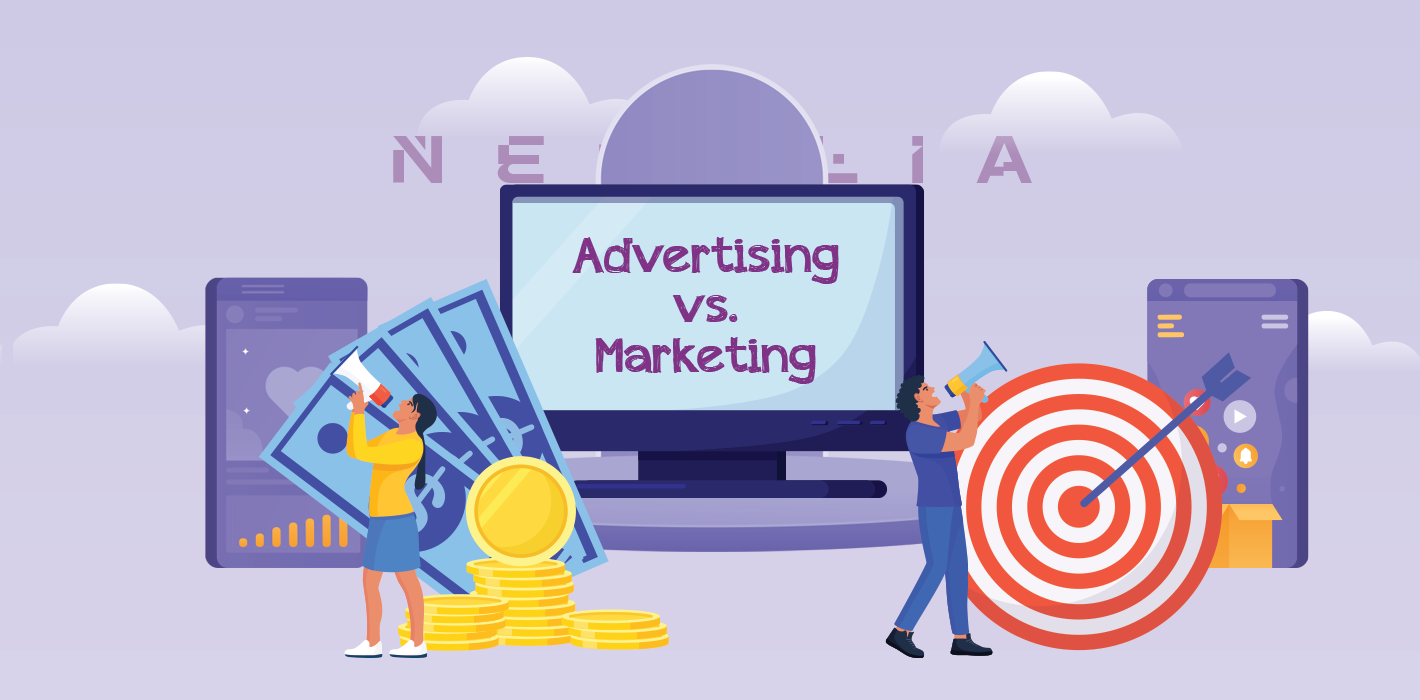
12
The Difference Between Marketing and Advertising
In the world of advertising and marketing, the terms "marketing" and "advertising" are often used interchangeably. However, these two concepts have fundamental differences, and understanding them can help businesses make better decisions for their needs.
What is Marketing?
Marketing is a business practice that involves identifying, predicting, and meeting customer needs. Effective marketing strategies help businesses find the best ways to serve their customers while maximizing revenue. These services include market research, marketing strategies, brand management, and analysis and reporting. Each of these services has its own definitions, and below we will briefly introduce the concepts:
- Market Research: Identifying and analyzing the needs of the target market, consumer behavior, and competitors.
- Marketing Strategies: Designing long-term strategies for brand growth, including content marketing, SEO, email marketing, and digital marketing.
- Brand Management: Helping brands create an identity and strategy based on target customers and specific markets.
- Analysis and Reporting: Analyzing campaign performance and providing reports that help optimize marketing strategies.
The primary goal of marketing is to create an overall strategy for brand enhancement, attracting new customers, and retaining existing ones.
What is Advertising?
In contrast, advertising specifically focuses on promotions and advertising campaigns. These agencies are typically focused on designing and executing advertisements that are delivered through various media to the audience. Businesses use advertising to promote their products and services for sale and to build corporate culture and branding. When advertising is properly and strategically employed, it can help attract customers and increase sales. The services provided by advertising agencies include media advertising, creativity in advertisements, campaign management, and performance measurement.
- Media Advertising: Designing and executing advertisements on television, radio, the internet, billboards, and magazines.
- Creativity in Advertising: Designing attractive and impactful ads to capture the attention of the audience.
- Campaign Management: From content creation to selecting advertising channels and executing campaigns.
- Measuring Advertising Performance: Analyzing the performance of advertising campaigns and evaluating their success.
The primary goal of advertising agencies is to create effective and engaging advertising campaigns to attract attention and generate buying interest in the short term.
Do Marketing and Advertising Differ from Each Other?
To answer this question, the differences between the two should be examined in various aspects:
- Goal:
- Marketing focuses on overall brand enhancement, attracting new customers, and retaining existing customers. Marketing is centered on long-term strategies.
- Advertising, on the other hand, aims to quickly attract customers and promote products or services through campaigns, leading to increased sales in the short term and greater awareness.
- Tools and Activities:
- Marketing includes market research, competitor analysis, content strategy, SEO, digital marketing, and more.
- Advertising is limited to media promotions. Tools used in advertising include television, online ads, billboards, etc.
- Customer Interaction:
- Marketing seeks to create a long-term strategy for customer relationships.
- Advertising is focused on quick customer acquisition and temporary attention.
- Content:
- Valuable and impactful content in the long term is the output of marketing.
- Advertising focuses on short-term, attention-grabbing messages.
Conclusion
Despite the intertwined nature of advertising and marketing, it’s important to understand that marketing addresses broader and longer-term strategies, whereas advertising focuses more on short-term and tactical promotions. By understanding these differences more clearly, you can make the best decision for the specific needs of your brand.